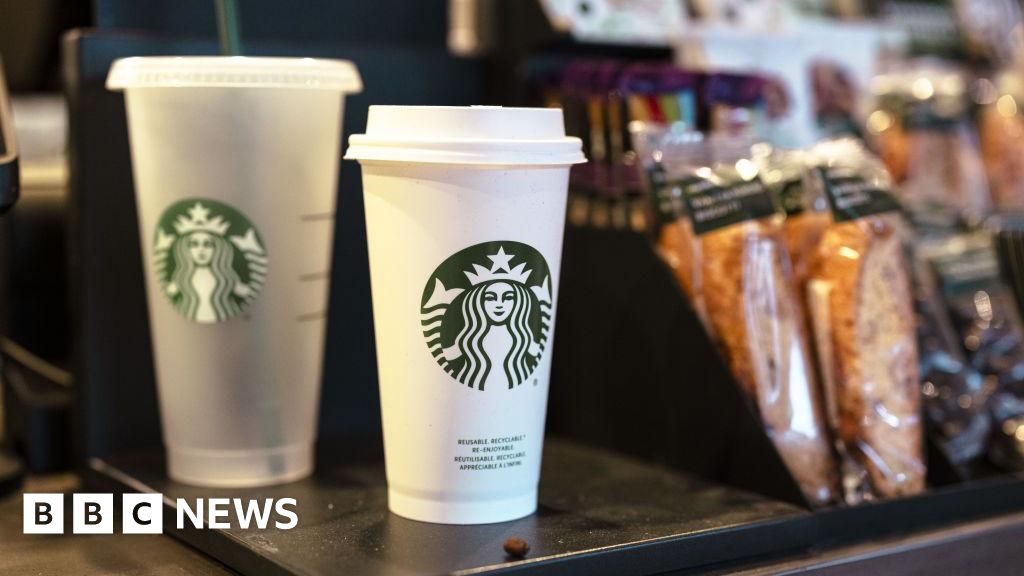
 Getty Images
Getty ImagesStarbucks is set to eliminate 1,100 positions and streamline its menu in the United States as it seeks to revitalize its struggling business within its primary market.
Among the first menu items to be discontinued are the Royal English Breakfast Latte, White Hot Chocolate, and various blended frappuccinos.
The company plans to remove additional offerings, aiming to reduce its menu by approximately one-third over the upcoming year. This initiative is intended to lower wait times while enhancing product quality and consistency.
Starbucks has faced a prolonged decline in sales since last year, particularly noticeable within the U.S. market.
To help turn the company around, Chief Executive Brian Niccol, formerly of Chipotle, was appointed last year. He expressed a desire to bring Starbucks back to its origins as a coffee-focused enterprise.
Starbucks stated that the drinks earmarked for elimination “were infrequently ordered, complicated to prepare, or redundant with existing beverages.” The aforementioned changes will take effect on March 4.
“We are simplifying our menu to concentrate on a smaller selection of popular items delivered with excellence,” the company announced on Monday.
“This strategy will facilitate innovation, shorten wait times, bolster quality and consistency, and reaffirm our identity as a coffee company.”
The job reductions disclosed on Monday will primarily affect corporate “support partner” roles, leaving store jobs and investments unaffected, according to the company.
The affected employees will be notified by midday on Tuesday, and the company will also cut “several hundred” unfilled positions.
“Our goal is to enhance efficiency, foster accountability, simplify processes, and promote better integration,” stated Mr. Niccol in the announcement.
With over 360,000 employees and more than 40,000 stores globally, Starbucks remains a major player in the industry.
Despite its significance in the U.S, the brand has struggled recently due to customer complaints about lengthy wait times and high prices, along with ongoing conflicts with baristas attempting to unionize.
The company has also faced backlash over its position on the Israel-Gaza conflict, receiving boycott calls from both pro-Israel and pro-Palestinian groups, despite efforts to maintain a neutral stance.
In the previous quarter, Starbucks reported an 8% decline in transactions at U.S. locations open for at least a year compared to the same timeframe a year prior.
This menu simplification marks a departure from previous strategies that focused on personalized beverage options.










